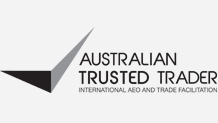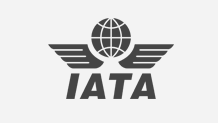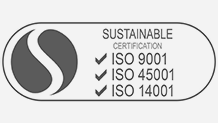Fracht Australia News - November 2022
31/10/2022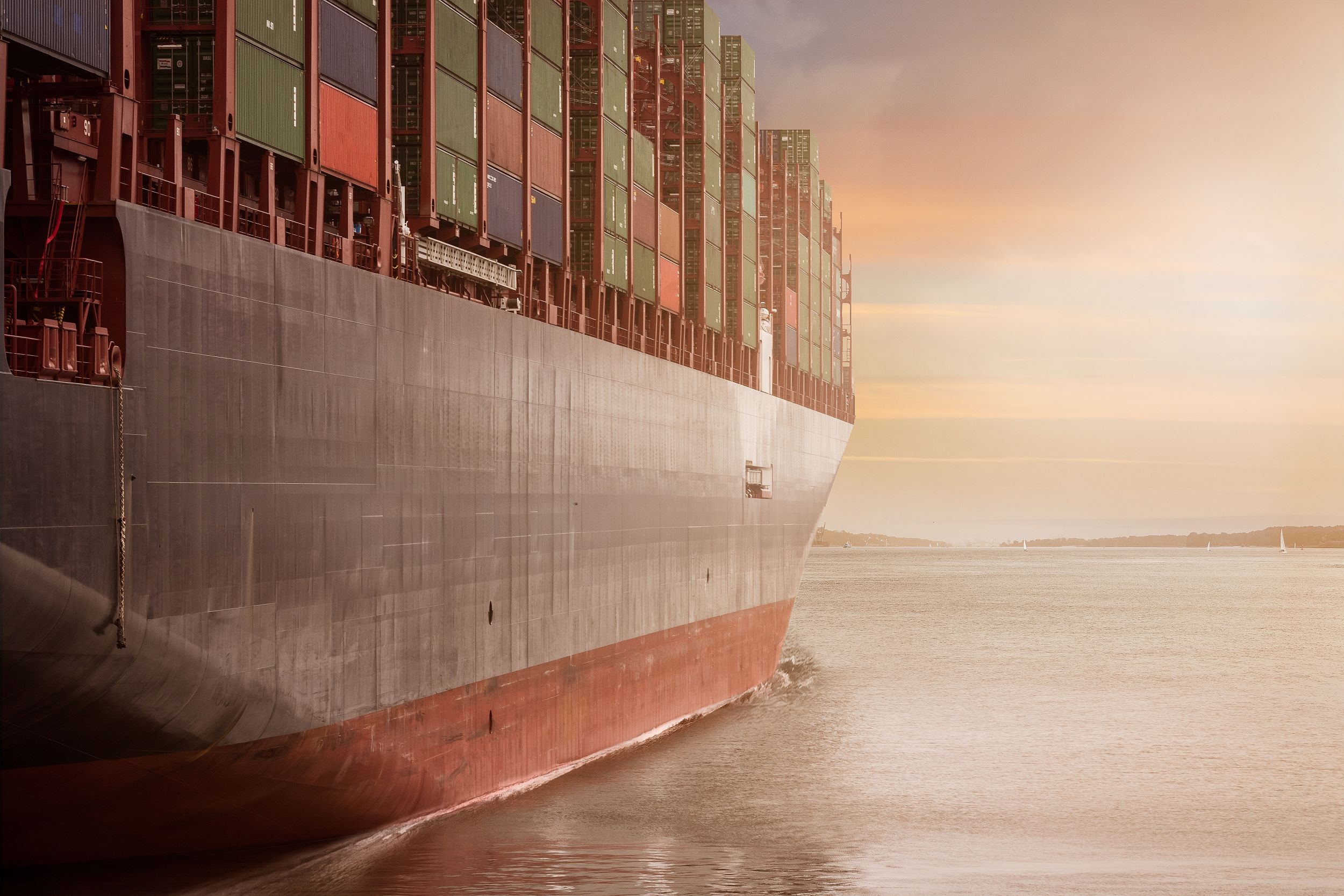
"If you want to achieve greatness stop asking for permission."
- Anonymous
FRACHT GROUP SUPPORTS THE SUSTAINABLE DEVELOPMENT GOALS
Since its inception, over 65 years ago, the Fracht Group globally has taken action to better our global communities. It is now with great pleasure that we have used the past experiences as the building block and to put a name to these efforts; Fracht Forward. All Fracht Group offices are represented in this global force to make the world a better place now and for all future generations. We have aligned ourselves with the United Nations’ 17 SDGs; there is no limit to what can be accomplished!
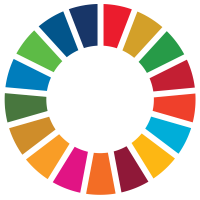
AROUND THE WORLD
- DUTCH GOVERNMENT plans to cut the maximum number of flights permitted at Amsterdam Schiphol from 500,000 to 440,000 per year. Claimed to be a first for airports in terms of putting the climate before economic growth, the reduction in flights at Schiphol was announced in June and would represent an 11% decrease compared with pre-pandemic numbers. Dutch shippers’ council has warned that the cut, scheduled to begin 1 November 2023, will result in a further reduction in available capacity.
- EUROPE – PORT CONGESTION continues to worsen across Europe, the ripple effect from the strikes in Germany, Felixstowe and now Liverpool exacerbating the already crippling delays. Following recent announcements, the Port of Liverpool have announced further strike action of union members planned during the period of 24 October – 7 November. These issues will mostly impact the retail and manufacturing sectors which rely on sourcing products globally. The strikes will also delay the normal peak season from China to Europe.
- SOUTH AFRICA – PORT STRIKES an ongoing situation that may impact vessels calling Durban and East London ports in South Africa. Transnet Port Terminals (TPT), the state-owned port operator, which is part of the Transnet group, declared an event of Force Majeure to all its customers because of a strike declared by the two recognized unions within Transnet – the South African Transport Allied Workers’ Union (SATAWU) and the United National Transport Union (UNTU) on wage negotiations.
- EUROPE – BLANK SAILINGS – the top North European container hub ports are seeing a considerable reduction in alliance calls from Asia, and so are bracing for a significant drop in throughput in the final quarter of 2022. Ocean carriers are being forced to drastically adjust weekly capacity from Asia to Europe and the US against a background of exceptionally weak demand – and the bleak outlook could see many more advertised sailings withdrawn in the coming months.
SEAFREIGHT NEWS
- ANOTHER PREDICTED RECORD YEAR FOR CONTAINER SHIPPING – The container shipping sector is heading for another year of record revenue while freight rates remain elevated, according to a new report from the Allianz Trade Economic Research Department. Allianz Trade economists said the sector’s revenues doubled in 2021 and are expected to increase by 19% year-on-year, while operating cashflow is expected to grow by 8%. Although freight rates reportedly fell, data suggests they are still well above the pre-pandemic average and are not expected to return to the pre-pandemic levels in the short term.
- OOCL TRIALS BIOFUEL – Orient Overseas Container Line (OOCL) has completed a biofuel trial on its AAA1 service, which runs between South East Asia and the east coast of Australia. The 4,578-TEU (twenty-foot equivalent unit) OOCL Yokohama was fuelled with 1,999.3 tonnes of B22 marine biofuel at Singapore on 24 June. This biofuel can be used on vessels without changing engine specifications and, according to OOCL, is expected to decrease approximately 15% to 20% of exhausted carbon dioxide based on lifecycle analysis.
- MSC MEDITERRANEAN SHIPPING COMPANY advised that the Capricorn and Kiwi services will undergo an upgrade of rotation. These service enhancements will improve schedule reliability and transit times for both dry and reefer cargoes ex Australia and New Zealand to worldwide markets. Further to this, MSC has started offering a service from ASIA-IPAK-MEG to Fiji via their Noumea Express service. This will connect MSC’s global network to and from Lautoka and Suva on a fortnightly basis via Brisbane.
- MAERSK ORDERS SIX BIG METHANOL-READY CONTAINERSHIPS – AP Moller – Maersk has ordered six ocean-going containerships that can use methanol as a fuel. Hyundai Heavy Industries are to build the six vessels. Maersk fleet and strategic brands CEO Henriette Hallberg Thygesen said Maersk’s customers are looking to the company to decarbonise their supply chains. “These six vessels able to operate on green methanol will further accelerate the efforts to offer our customers climate neutral transport.” she said.
- DREWRY CONTAINER INDEX DROPS AGAIN – Drewry’s composite World Container Index decreased by 6% this week, marking the 33rd weekly decrease in a row. It places the latest Drewry WCI composite index 66% below the peak reached in September last year. This reportedly is 7% lower than the 5-year average of USD 3,732 per 40-foot container, indicating a return to more normal prices, according to Drewry. However, it remains 145% higher than average 2019 (pre-pandemic) rates.
- SEVERE SPACE SHORTAGES ON ROLL-ON / ROLL-OFF (RORO) SERVICES – Carriers operating Roll-on / Roll-off ships, which are specialised cargo vessels equipped with ramps for transporting wheeled vehicles as well as heavy lifts, are struggling to meet contractual demands and have ceased accepting any new spot bookings on some of their major trade lanes until 2023. Growing exports of China-made cars together with port congestion in key RoRo ports have had a knock-on effect in disrupting fixed vessel schedules. This is stretching vessel capacity to the limit, creating significant increases in charter freight rates.
- TRANSIT TIMES TO INCREASE – The IMO’s introduction of the Carbon Intensity Indicator (CII), targeting vessel efficiency and carbon intensity will enter into force on 1 January 2023. The regulations will encourage the improvements of vessel efficiency, adoption of low-carbon alternative fuels, and lower emissions in international shipping. CII is arguably the most impactful climate regulation in shipping to date, with far-reaching implications for both carriers and shippers. While the final frontier in reducing emissions is switching over to a sustainable fuel source (such as LNG, methanol, ammonia or hydrogen), in the short term, carriers are expected to reduce the vessel speed to reduce their emissions, with expected increases in transit times of between 10% – 16%.
- VESSEL SCRAPPING will be required to address a looming “severe risk of overcapacity” in container shipping. The lack of investment in replacing smaller containerships in recent years, in comparison to the rush to order Ultra Large Container Vessels (ULCV’s), has resulted in the industry becoming ‘top heavy’. “Demolition will be the main way to cut supply and mitigate overcapacity risks,” said Alphaliner, “but it remains to be seen how much of the fleet could effectively be torched, considering its average age of just under 14 years.”
- DRAMATIC CUTS TO SERVICES are expected, as shipping lines battle to hang on to ‘super-cycle’ profits. Ocean carriers are preparing to implement the severest cuts to liner services since the beginning of the pandemic, as demand levels plummet across global trade lanes. Following the recent culling of services on the transpacific, the three vessel sharing alliances are considering the temporary suspension or merging of some Asia - North Europe loops to mitigate the impact of a dramatic slump in bookings and to slow the erosion of freight rates.
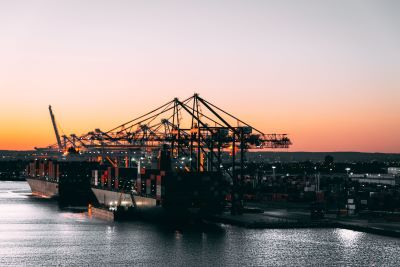
AIRFREIGHT NEWS
- THE LATEST AIR CARGO MARKET ANALYSIS BY IATA REVEALS that worldwide volumes showed resilience in August, with a 1.0% growth, compared with July. This is a solid comeback from the marked decline of 9.6% year-on-year in the previous month. The Asia Pacific region saw the most significant increase from 2.4% in July to 12.4% in August. Globally, the recovery in the Asia market brought positive growth in air cargo demand in some of the largest cargo markets. Inflation levels in G7 countries dropped for the first time since November 2020, signalling stronger confidence in the world trade and the global air cargo market.
- AMERICAN AIRLINES have announced the return to the Australian market with daily wide-body services between Sydney and Los Angeles. Wide-body connections are currently operating from Los Angeles to Dallas, Chicago and Miami, with additional options available within most of mainland USA. American Airlines also has services to Mexico, Caribbean, South America and Central America via wide-body hubs Dallas and Miami.
- CATHAY PACIFIC REBUILDS. Hong Kong and its home carrier, Cathay Pacific, have had a torrid couple of years, politically, as well as coping with the zero-Covid strategy of strict quarantine and travel restrictions. The airline has now recovered sufficiently, with the easing of quarantine restrictions, to have one-third of its pre-Covid passenger capacity, and two thirds of its cargo capacity back, an acceleration that happened in early October. “We’ve had a full freighter schedule for the past couple of months, helped by the relaxation of quarantine rules. Last year, we had to redeploy freighters from long-haul to regional routes, because of quarantine, but we are now back” said Tom Owen, cargo director of Cathay Pacific.
- THAI AIRWAYS DOUBLES MELBOURNE-BANGKOK FLIGHTS – Thai Airways is capitalising on the increase in international travel and Australia’s upcoming summer holiday season by increasing the frequency of its flights between Melbourne and Bangkok from once per day to twice per day beginning on 1 December.
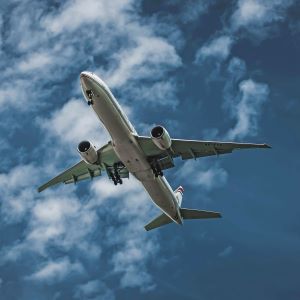
AUSTRALIAN PORTS
- PORT OF NEWCASTLE welcomed the world’s first ship equipped with a Wind Challenger hard sail. Bulk carrier ‘Shofu Maru’ operated by Mitsui OSK Lines (MOL) called Newcastle as part of its maiden voyage from Japan, drawing plenty of attention with its futuristic retractable sail system. The Wind Challenger hard sail system was designed to help ships harness wind as a sustainable energy source. The sail expands and retracts (vertically using AI technology to sense the strength and direction of the wind. MOL expects the Wind Challenger to reduce GHG emissions by around 5% on a voyage from Japan to Australia compared to a conventional vessel of the same type.
- THE CMA CGM ESTELLE broke the record for the ship carrying the greatest number of containers ever to visit Australia, when she came into Port Botany on Monday, 3 October. The CMA CGM Estelle, which runs on the MSC / CMA CGM NEMO Australia Express service between Europe, the Indian Ocean and Australia is 299.9 metres long, and was built in 2018. It has a 14.5 metre draught and is 48.2 metres wide. CMA CGM Estelle’s TEU capacity of 10,926 eclipses the previous record vessel, CMA CGM Ural, which visited Australia for the first time in June 2020.
CUSTOMER SERVICE
If you would like further information about any of the above items, please contact one of our friendly Fracht Team members at fracht@frachtsyd.com.au









